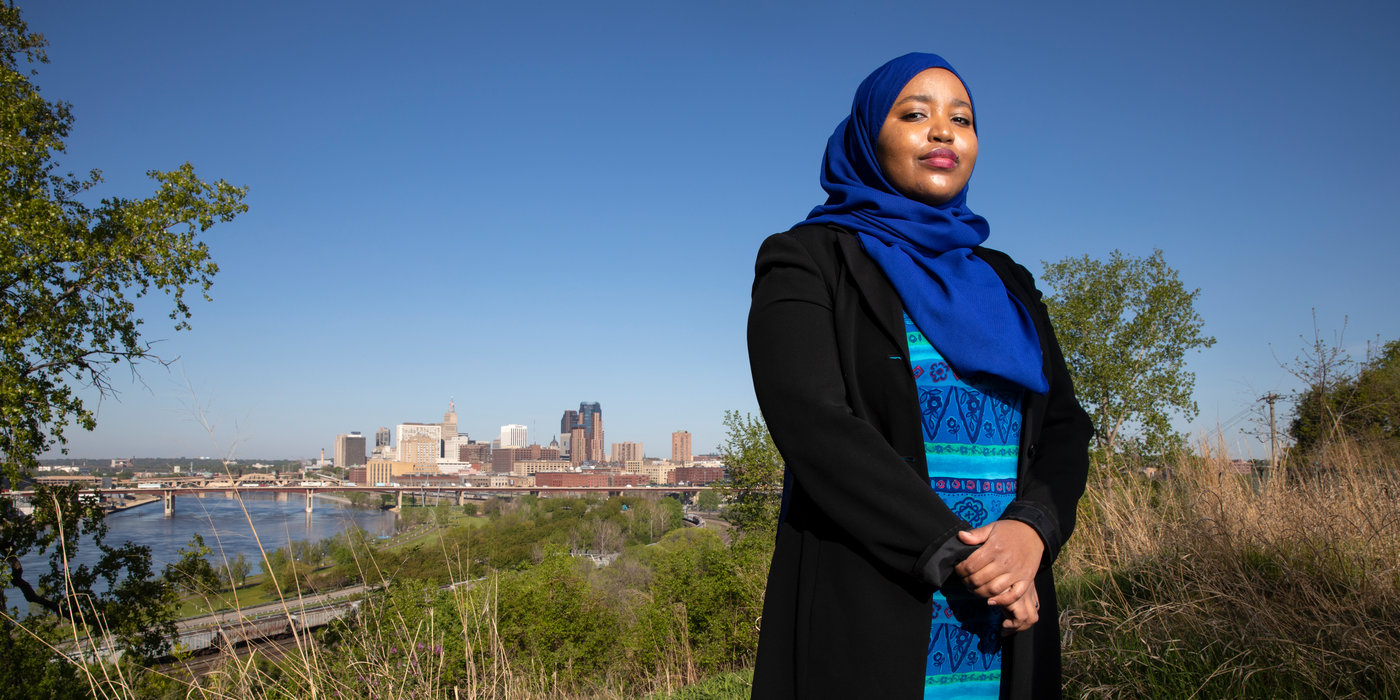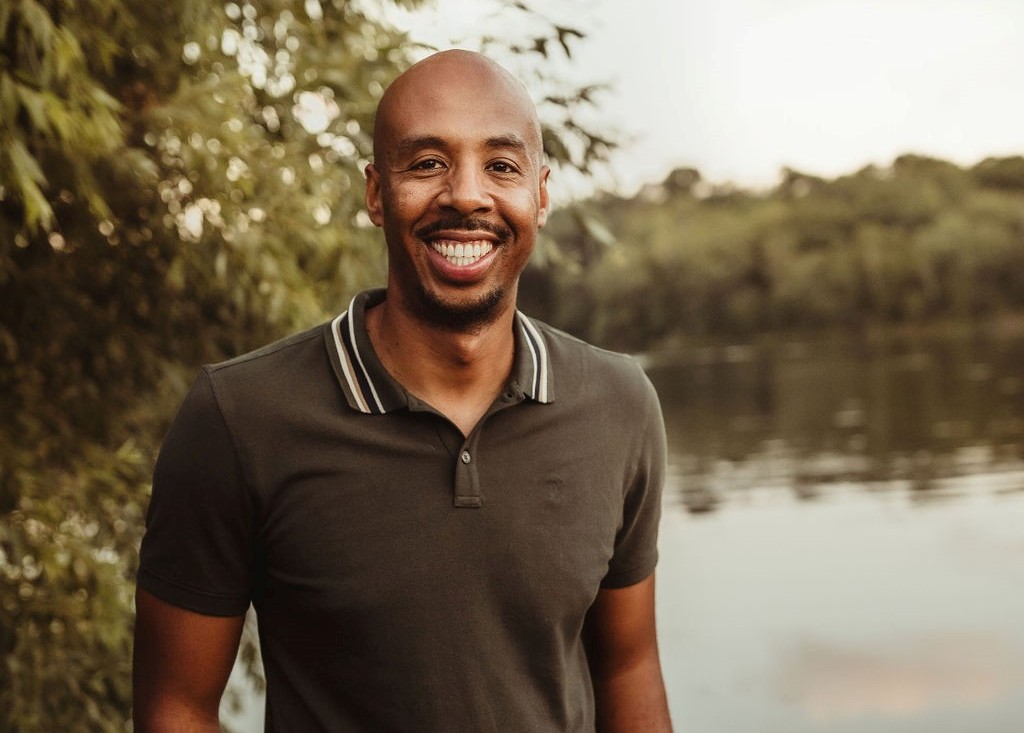The idea of being "called to serve" is a tricky one.
It sounds explicit, the answering of a voice calling you toward action. While it can be that explicit, it's just as often not; it's instead the culmination of lived experiences, moments stacking up in someone's mind until they coalesce into feeling - maybe not even fully known to the person themselves - that they should be taking steps to serve others.
At the School of Social Work, the call to serve is in no uncertain terms made explicit; that feeling is put through a prism of focus around principles of social justice. Students emerge not only with a stronger sense of the need to answer that call to serve, but armed with skills of how to do it. According to BSW Program Director Dr. Katharine Hill, “This is the way we’ve always taught generalist practice. It doesn’t matter what type of work you ultimately do – whether direct practice or community work - you’ll apply the same skills, rooted in respect and dignity for all.”
“Certainly it was the social work program that readied me for public service work. It’s so philosophically ingrained into social work in general,” said Paul Schnell ’88 BSW , Minnesota Department of Corrections commissioner. “At the time I was being grounded in the principles of social work, exploring the potential of people and communities and the hope we could be better, and as I got older my own life experience combined with my educational experience to set me on a path I’m still on today.”
Schnell’s path toward public service is one he shares with many SSW alumni, including Ikram Koliso ’17 BSW, policy associate for the city of St. Paul, and Angela Conley ‘13 BSW, Hennepin County commissioner, all three of whom entered public office in 2018. Across their stories is the truth of social work’s power to prepare public servants who truly embody the role: servant to the public.
“For me, this isn’t just politics; it’s public service. The people of the Fourth District elected me, trusted me, to serve them. That’s what I’m focused on. I’m best prepared to do that because of my lived experiences and what social work taught me. A lot of those social justice principles were there for me, but my education confirmed it and brought it forward,” Conley said. “A lot of our elected leaders have law backgrounds, public policy backgrounds. There’s something to be said about the public servant with a social work background. It’s ultimately rooted in humanity, sometimes love, and rooted in the need to see people uplifted. That’s what we’re elected to do.”
Stepping up
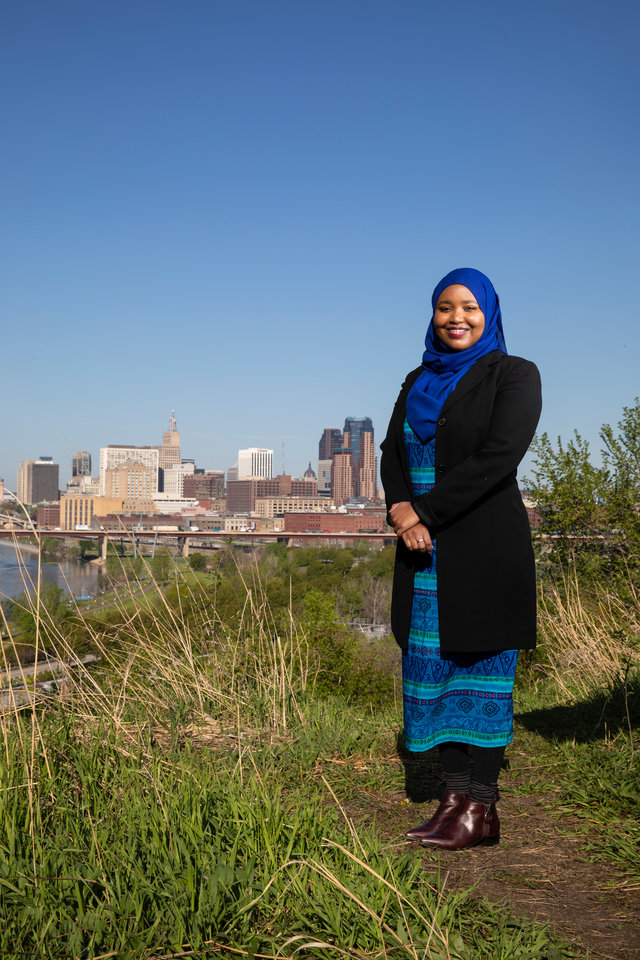
Ikram Koliso stands for a portrait at Indian Mounds Park overlooking downtown St. Paul.
Koliso is the first to admit she didn’t expect to be where she is today. Not because she was such a recent graduate when she was tapped by St. Paul Mayor Melvin Carter to represent him on the Metropolitan Airports Commission, which oversees Minneapolis-St. Paul International Airport and six smaller airports in the Twin Cities. She rightfully has plenty of confidence in her ability to represent St. Paul’s residents there, especially the many airport workers who are immigrants, an experience she shares after being born in Ethiopia and immigrating with her family to Minnesota when she was 10.
No, she’s not where she expected to be because she realized during her SSW education she loved direct service with people so much.
“That’s what I’m most passionate about and love; direct contact is where I get my energy,” said Koliso, whose passion poured out in 15 minutes straight of talking when first prompted to consider how she got into social work. “When I was doing that through my field work – which is so great you get that experience as a student to see if you love it – direct service was such a powerful thing for me.”
As she now navigates her role as a policy associate and advocating at the policy level, she does so with an understanding of the need for knowledge only gained through direct interaction and service with the community she loves so much.
“Systems and policy change is where the problems are actually rooted, but I don’t think people should focus just on policy; policymakers should experience direct service so they can understand what the realities are. You can’t be in just one world; to do that is a disservice to our community. To do both is the only way we’re going to move forward,” she said. “Having grown up in a community of mostly immigrants, East African and Hmong families, I never experienced policymakers coming to us and asking us what we think. A lot of times policymakers create programs or services for the community … and bring it, saying, ‘Look what we did for you.’ What if that doesn’t work for me or fit my needs, or is not how I want to be incentivized? That’s a disconnect you’ll always have [unless you combine direct service and lived experience with policy]. It’s always top of mind for me to have community truly be the center of the work we do.”
Ikram draws on a mindset she developed in the SSW to make sure she’s leading by example in how to view people’s strengths and the value they add.
“In public policy people often focus on the deficits. We won’t get anywhere if you see the community as incapable,” she said, citing the development of St. Paul’s childhood college savings account program as an example she has been excited to be part of.
Along with making sure the community is a part of creating solutions, Koliso recognizes the need for much more diverse representation in policymaking.
“We as people of color, especially women, have to make space for ourselves in public service. … If you just have a few it’s not enough either. We need to build space for ourselves,” she said. “Other people from the white community need to help; they’re the ones who have the power and are in the space. … Women of color bring a lot more to the table. Right now their perspectives, voices and advocacy, we’re in dire need of it.”
A new face at the table
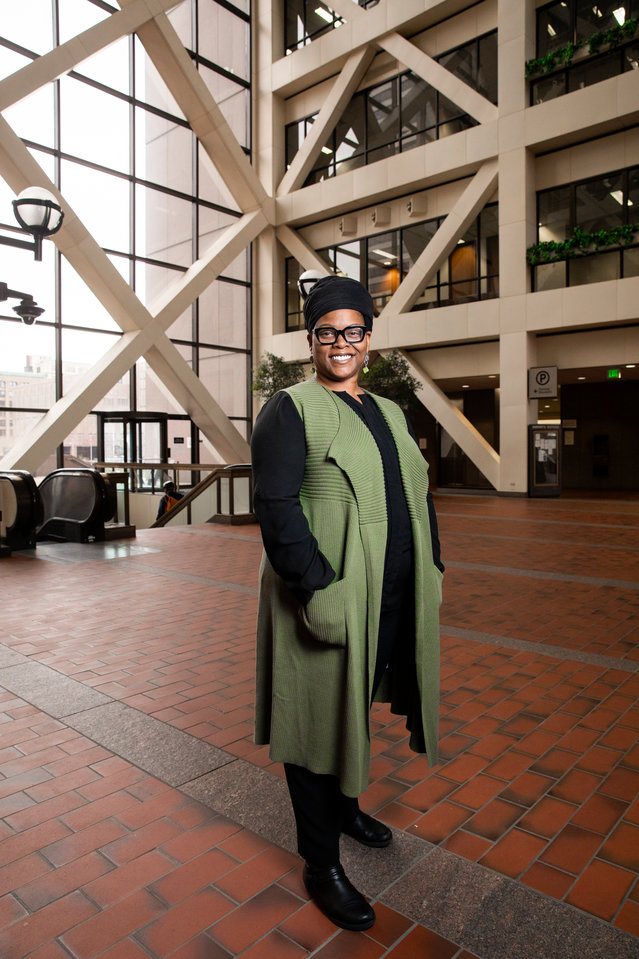
Hennepin County commissioner Angela Conley stands for a portrait in the Hennepin County Government Center in downtown Minneapolis.
Perhaps no one understands the need for their own voice at the table more than Conley: When she was elected county commissioner for the Fourth District of Hennepin County in November 2018, she became the first black commissioner in the county’s 166-year history. She made a statement heard around the country when she was sworn into office with her hand not on a Bible, but on the 2010 Michael Alexander book, The New Jim Crow: Incarceration in the Age of Color Blindness.
“Just my election, being elected, was a powerful signal to the status quo that things are changing,” she said. “You can’t continue the way you’ve been. You have the first black woman elected to this body, ever, and she was on welfare. The day after the election, our team likes to say, ‘The status quo got put on notice.’”
Since then Conley has continued not just putting the status quo on notice, but actively doing everything she can to bring her lived experiences – and those of people she represents – to bear in disrupting a system set up in many ways to their disadvantage.
“I have a chance now to witness this very large institution and how it works against people. I’m very loud about that. I’m loud about the fact this system is designed to work against us. It’s a huge uphill battle,” Conley said. “I’m not going to throw my hands up, but instead wipe the sweat from my brow, take a breath and keep going. I see the conversation moving, and in some respects I have to push it.”
Conley’s representation is so important in large part because of her own experiences, including working in human services in Hennepin County before applying to the SSW, where she completed her degree through night and weekend classes as a single mother.
“I was working with people in poverty, receiving cash and food benefits. I was one of those myself,” she said. “Part of that human dynamic, knowing what it’s like to struggle to survive, and how society functions differently when you’re poor. Doing that work is what led me to think social work would be good to study.”
As her studies supplemented what she was seeing every day at work and in life, she “expanded my views. It complemented the work I was doing, but also made me look at the work I was doing differently,” she said. “It broadened my mission to include the need to throw a monkey wrench into the system that should be working for people but isn’t.”
That realization led to her campaign and eventual election, where she now brings to bear every day social justice principles to help make change inside that system.
“I’m bringing lived experiences and attributes that are helping me inform the conversation within these walls,” she said. “I’m pushing a narrative toward more and more people talking about ways in which micro practice and community perspective are lenses that we inform policy with.”
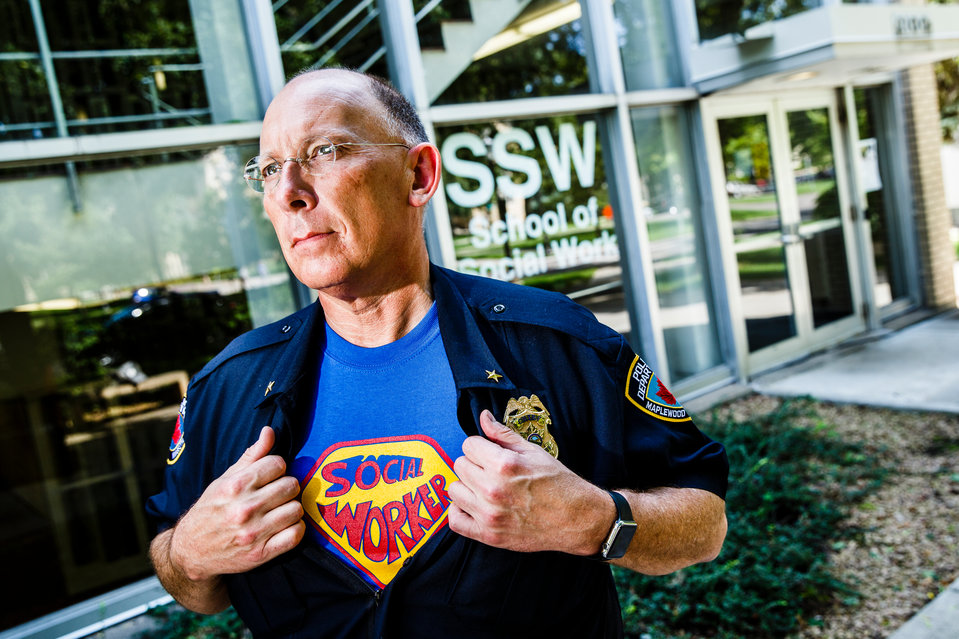
Paul Schnell poses for a portrait in front of the Summit Classroom Building in 2016.
Staying rooted from the top
Depending on where someone’s answer to the call of service takes them, there is the inherent challenge of bridging the distance from policy to reality. For Schnell, that challenge comes as he heads the Department of Corrections, which has more than 4,000 employees and a more than $600 million budget overseeing nearly 10,000 incarcerated people.
To accomplish this, Schnell draws a straight line back to his time at the SSW and his internship working at a male halfway house.
“It’s the exact same thing: you’re trying to lift up others. Now it’s just macro across a large organization,” he said. “The core principles are exactly the same. As I’ve been meeting with staff, I’m talking about what I’m asking of every member: that we exist to create successful experiences for others. That’s why we exist. That has to happen at every level of the organization.”
Schnell regularly spends time with individual inmates, helping ground him in the lived experiences and human dignity of everyone involved in even the most difficult elements of the legal system.
“It speaks to the need and desire that every one of us has for hope,” he said. “Many of these inmates talk about the fact they recognize the harm they’ve caused and the need to be accountable, but also to have hope they can be more than the worse thing they’ve ever done. It’s powerful to think about that. All of us want that. Not one person out there would want to be regarded for the worst thing we’ve ever done.”
As Schnell’s path continues to move forward from its starting point at the SSW, it’s possible for him to look back and see the common goals he’s shared with others who have answered the call to service.
“When we talk about serving and this idea of the common good, it’s grounded in the same thing: How do we bring people along? Not just the easy ones to bring along, but everyone, even the people who may have caused us to feel some type of fear,” Schell said. “We have to bring them along, too.”
“That, he said, “is a call to a higher purpose.”
